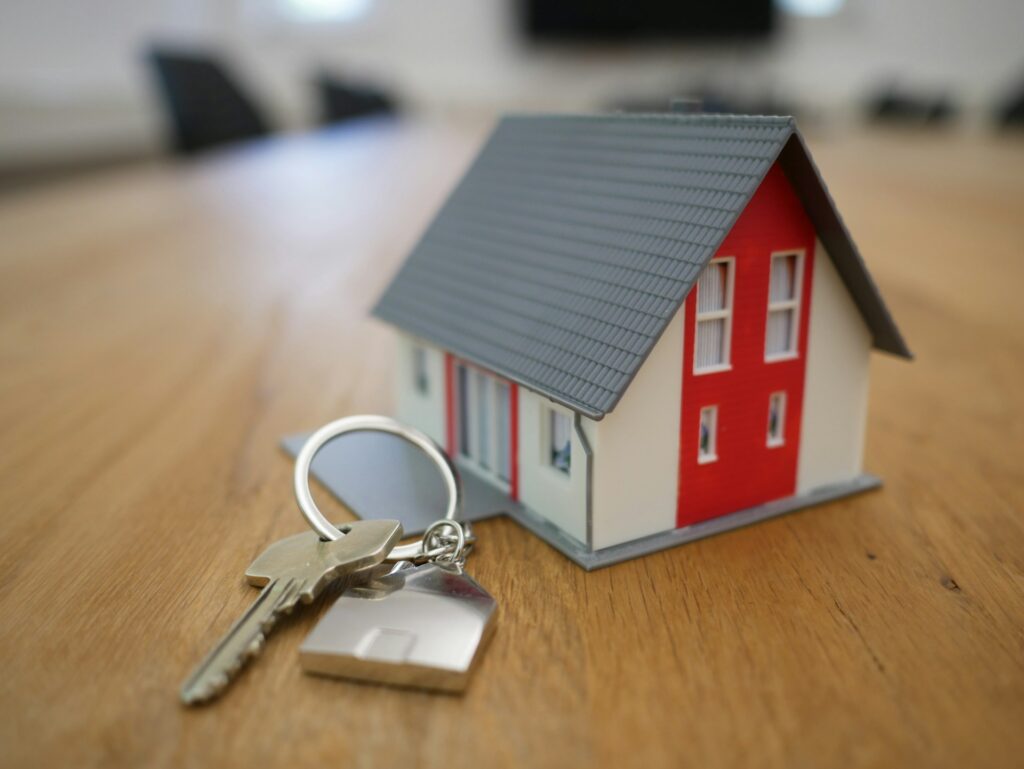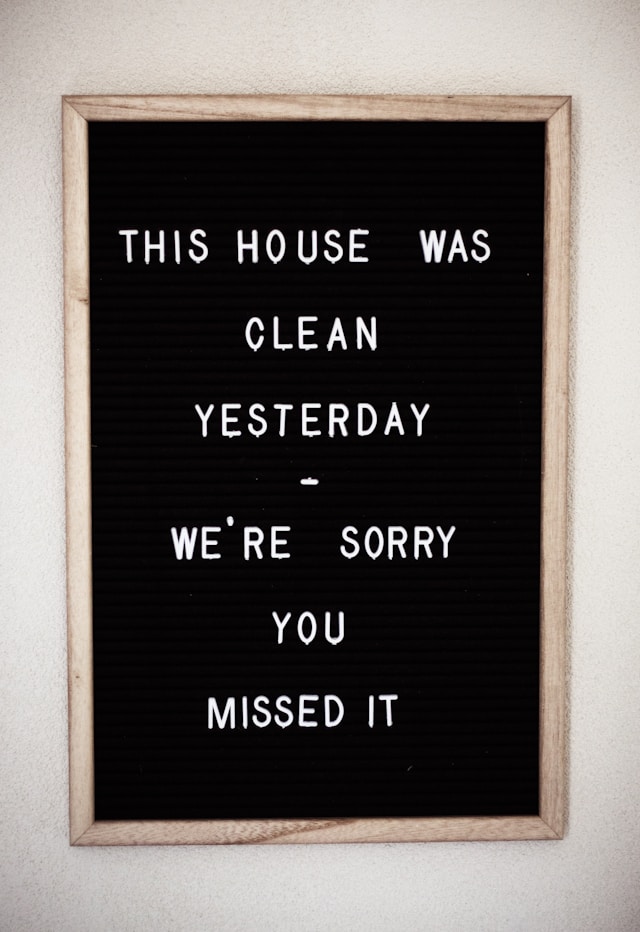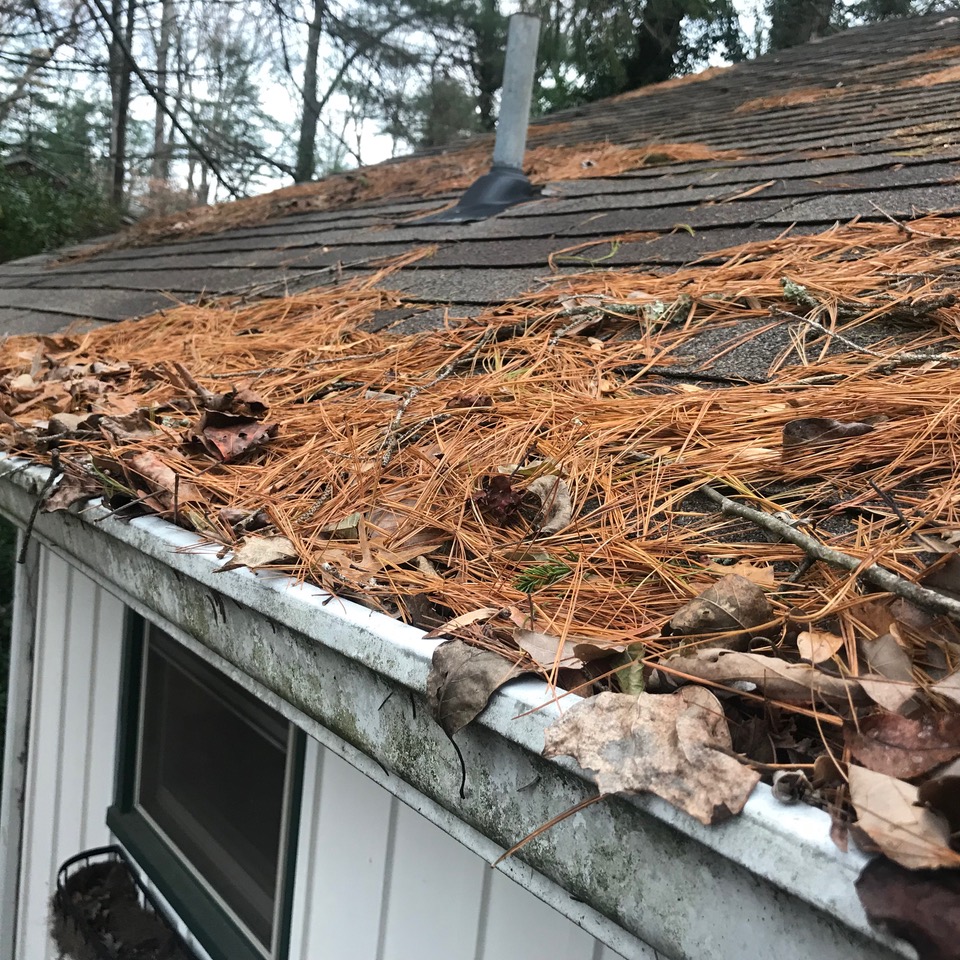
Photo by Tierra Mallorca on Unsplash
The new year is a time for fresh starts, setting goals, and making positive changes. While many focus on personal resolutions like finally learning to speak fluent Klingon or mastering the art of competitive thumb wrestling, homeowners have a unique opportunity to improve their living spaces and enhance their home ownership experience.
Let’s shift the resolution focus from personal to property and explore some simple yet impactful New Year’s resolutions for homeowners. These aren’t about grand renovations involving indoor waterfalls or secret underground bunkers; they’re about consistent maintenance, smart habits, and creating a home that brings you comfort and joy year round.
Owning a home is a bit like adopting a very large, somewhat temperamental pet. It needs attention and care. By taking proactive steps to maintain and improve your property, you’re not only protecting that investment but also creating a more enjoyable living environment.
Regular upkeep can prevent costly repairs, improve energy efficiency (so you can afford more than just ramen noodles for dinner), and even boost your home’s resale value. More importantly, a well-maintained home contributes to a sense of pride and well-being and (mostly) keeps the chaos at bay.
Let’s take a look.
8 Simple Homeowner Resolutions
Here are eight manageable resolutions that can make you a better homeowner, without requiring you to sell a kidney.

1) Deep Clean & Declutter
A cluttered home can lead to stress and inefficiency. It can also lead to the spontaneous creation of new life forms in the shape of dust bunnies the size of small dogs. Start the year fresh with a thorough decluttering and deep cleaning.
Go room by room, purging unwanted items (that collection of Beanie Babies from 1998 has GOT to go).
Organize storage spaces so you can actually find that matching sock, and give everything a good scrub before those dust bunnies start demanding rent. This not only creates a more pleasant living space but also allows you to identify any potential maintenance issues hidden beneath the clutter (like that suspicious stain under the couch you’ve been avoiding). Consider donating unwanted items to charity or selling them online to give them a second life.
2) Inspect & Maintain HVAC Systems
Your heating, ventilation, and air conditioning (HVAC) systems are crucial for maintaining a comfortable indoor climate. Unless you enjoy living in a sauna in the summer or an ice cave in the winter, schedule a professional inspection and tune-up to ensure they’re running efficiently. This includes cleaning or replacing air filters, checking refrigerant levels, and inspecting ductwork for leaks.
Many HVAC companies have an annual maintenance membership plan with a small monthly payment and includes spring and fall HVAC checkups.
Regular maintenance can improve energy efficiency, extend the lifespan of your HVAC system, and prevent unexpected breakdowns, like the furnace deciding to quit during a blizzard.
3) Check for Leaks & Water Damage
Water damage can be a homeowner’s worst nightmare, leading to costly repairs and potential health hazards like mold growth. Resolve to regularly inspect your home for leaks, especially around plumbing fixtures, roofs (especially after a heavy rain or snow), and foundations.
Look for signs of water damage such as stains, discoloration, or dampness and that musty smell that just screams “MOLD!”
Addressing leaks promptly can prevent more extensive damage and save you money in the long run (and prevent you from having to invest in scuba gear for your living room).

4) Clean Gutters & Downspouts
Clogged gutters can cause water to overflow and damage your roof, siding, and foundation. Imagine your house suddenly sprouting waterfalls during a rainstorm – not exactly the relaxing ambiance you were going for.
Make it a habit to clean your gutters and downspouts at least twice a year, ideally in the spring and fall (before the leaves turn into a soggy, matted mess).
Remove leaves, debris, and other obstructions (like the occasional tennis ball or rogue bird’s nest) to ensure proper water flow. This simple task can prevent costly water damage and maintain the structural integrity of your home.
If you’re not experienced and steady on ladders, hire a handyman to do it.
5) Improve Energy Efficiency
Reducing energy consumption not only lowers your utility bills (which is always a win) but also benefits the environment, giving you some serious eco-warrior points!
Here are some simple ways to improve your home’s energy efficiency, without having to resort to living by candlelight and wearing five sweaters indoors:
Seal air leaks around windows and doors with weatherstripping or caulk (because letting your hard-earned heated/cooled air escape is like throwing money out the window – literally).
Upgrade to energy-efficient appliances and light bulbs.
6) Test Smoke & Carbon Monoxide Detectors Monthly
Make sure your smoke and carbon monoxide detectors are functioning correctly by testing them monthly (it takes about two seconds – no excuses!). Replace batteries annually or as needed. That annoying chirping sound is their way of begging for new batteries, not serenading you.
Install detectors on every level of your home and outside sleeping areas. These devices are essential for early detection of fire and carbon monoxide leaks, potentially saving your life.

Photo by Wonderlane on Unsplash
7) Organize & Secure Documents
Important documents related to your home, such as insurance policies, mortgage documents, and home improvement records, should be organized and stored securely. Imagine trying to find your homeowner’s insurance policy in the middle of a storm-induced power outage – not fun.
Some homeowners store documents, such as the deed to their homes, off site in a safe deposit box.
Create a physical or digital filing system (whichever works best for you, but just make sure it’s not a shoebox overflowing with crumpled papers). These documents are crucial in emergencies, such as needing to file an insurance claim after your house turns into a waterfall feature – see #5.
8) Create a Home Maintenance Schedule
Consistency is key to effective home maintenance. Trying to remember everything you need to do to keep your house in tip-top shape is just not going to happen. Create a regular schedule for routine tasks like cleaning, inspections, and repairs. Break down larger tasks into smaller, manageable chunks, so you don’t feel overwhelmed and give up before you even start.
A well-organized schedule will help prevent problems from escalating and create a more organized and efficient approach to home ownership, and maybe even give you some free time to finally learn that Klingon!
Happy New Year!

Wishing all of you a joyous and prosperous New Year 2025!
Buying or selling a home in Western North Carolina?
Avoid unpleasant surprises! Contact Asheville Home Inspector Peter Young before signing any contracts. Call (828) 808-4980, or click here to make an appointment.